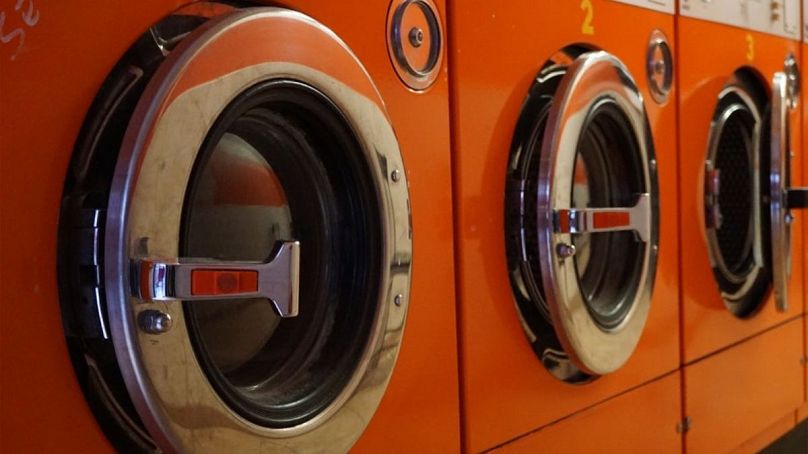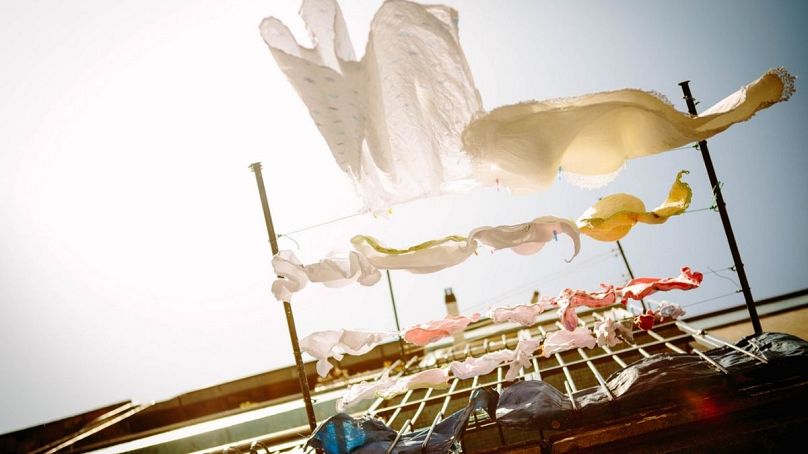How to transform your clothes washing habits to have less of an environmental impact.
Extending the life span of a garment is becoming increasingly important in the fight against increasing waste on our planet. However, for a piece of clothing to last it can’t escape the wash cycle and herein lies further complications. Today, many of our washing habits are causing harm to our waterways and use excessive amounts of energy. Fortunately, these harmful habits can be easily transformed to green habits, with the added bonus of saving some precious time:
 ADVERTISEMENT
ADVERTISEMENT
 ADVERTISEMENT
ADVERTISEMENT
The Issue: Water consumption
According to Energy Star, an average household completes around 400 loads of washing a year, using over 51,000 litres of water. All this from just one household! Reducing water consumption is one very simple way to save both water and time.
How to Counteract High Water Consumption:
Wait for a Full Load: Saving up your dirty clothes for the week and washing them in one big load (as opposed to two or three smaller loads) arrests the unnecessary overuse of water. This also saves time - an added bonus.
Use Size Cycles: Many washing machines have this option and it is incredibly useful. If a small wash is unavoidable, put your machine on a small load cycle and help save precious H2O.
The Issue: Detergent and Waterways
We all need clean clothes. Unfortunately, detergents, even bio detergents, can be poisonous to underwater life. Integral layers of mucus which protect fish from parasites and bacteria can be stripped away by the detergents being released into our waterways.
How to Counteract Pollutants entering Waterways:
Soap Nuts: These are a handy, natural and cheap alternative to detergents. You can easily add these to your wash. Simply wrap 4-6 soap nuts in some fabric scraps and place them in your machine. Soap nuts can be purchased through individual companies, such as SoapNuts, or on larger platforms including Amazon.
The Beauty of Spot Cleaning: Spot cleaning can prevent unnecessary laundry loads. Furthermore, using natural products can reduce the reliance upon detergents. Some great household alternatives include lemon, which can help to scrub the underarms of garments and baking soda, which can help with spot stain removal.
The Issue: Microfibres
Modern garments are often manufactured from a range of synthetic fibres. Some are riddled with harmful plastics such as polyester, polyamide, acrylic and nylon. When these garments are washed, millions of plastic microfibres are shed. Some are minute enough to leave the washing machine, pass through wastewater treatment plants and enter straight into our oceans, harming our waterways.
How to Counteract Microfibres:
Wash less: Many people wash their garments too regularly. If it’s not soiled to the point of requiring a wash, re-wear your item. This will reduce the release of microfibres and save time as a bonus.
Get a Guppy Friend: A Guppy Friend is an easy to use bag that can be placed in your machine to collect any microfibres that try to go astray. This product has been scientifically proven to prevent microfibres from entering our waterways.
The Issue: Energy, Energy, Energy
It’s not just the washing machine that is damaging the environment. Other culprits include dryers and irons, both of which use excessive amounts of energy. Selecting hot water when washing can also use substantial amounts of energy. In fact, 75% of the entire energy used for a wash cycle is used to heat up the water.
How to Counteract Energy Consumption:
Hang Clothes Straight Away: The water retained in your freshly washed garments can help to eradicate wrinkles, lessening the need for ironing. Water in a garment pulls down and out of the fabrication, using gravity to remove wrinkles. When drying fabrications such as linen, don’t do a final spin, instead leave some water in the garment creating more ‘pull power’ to expel those wrinkles.
Dry in the Great Outdoors: When possible use the sun and breeze – these have the added advantage of making your garments that enticingly bit fresher.
Folding Fun: When folding your clothes, ensure your fold line is where you want a crease, such as on a side seam. This eliminates the need to iron unnecessary creases out later. The way you store your garments can also form a natural press for your clothes. Place items that wrinkle more readily under other garments, allowing those on top to eliminate any creases.
Use Cold Water: Selecting cold water in a wash cycle saves energy. This has other benefits for clothing, such as retaining colour fastness (a material's colour resistance to fading or running) and reducing shrinkage - both of which lead to longer lasting garments and therefore means there is less of a need for new garments!
Challenge yourself to try some of these suggestions, knowing that just a few small changes can make a big difference to our precious environment – and our limited time.
Words: Alana Flood












